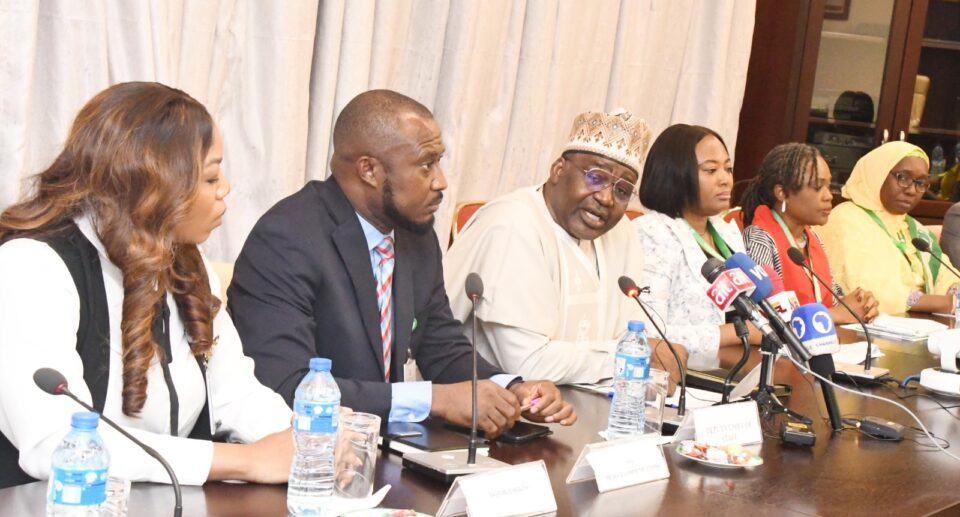* Says improved nutrition key to national development
By Chesa Chesa
The Presidency has called for a multi-stakeholder approach in ongoing efforts to combat the problem of malnutrition in Nigeria, saying improved nutrition is crucial for national development and economic growth.
Deputy Chief Staff to the President, Senator Ibrahim Hassan Hadejia, made the call on Monday during a press conference ahead of a high-level dialogue with faith leaders on nutrition scheduled to be held on Tuesday, April, 2024 at the State House Conference Centre, Abuja.
Vice President Kashim Shettima, who chairs the National Council on Nutrition (NCN), will deliver the Keynote Speech at the event, revealed a statement issued by his spokesman, Stanley Nkwocha.
Senator Hadejia stressed the need for collaborative efforts involving government, religious institutions, traditional authorities, and development partners.
He said the government cannot afford to neglect the issue of nutrition, as it “directly impacts human capital development, economic productivity, and our overall trajectory as a country.”
The Deputy Chief of Staff commended the efforts of the Accelerating Nutrition Results in Nigeria (ANRiN) Project funded by the World Bank for its innovative approach to leveraging the influence of faith leaders in promoting positive behavioral change and sustainable nutrition practices.
“His Excellency, President Bola Ahmed Tinubu, is passionately committed to advancing initiatives that promote sustainable nutrition activities in our nation.
“The event will bring together state governors, ministers, development partners, and apex bodies of faith and traditional institutions to align efforts with the Renewed Hope Agenda of President Bola Ahmed Tinubu’s administration,” he said.
He further noted that the upcoming high-level dialogue between the National Council on Nutrition and the faith leaders will provide a platform for strategic discussions and commitments towards sustainable nutrition investments for the benefit of all Nigerians.
Earlier, the National Project Manager of ANRiN Project, Dr. Ojuolape Solanke, observed the administration’s prioritization of malnutrition, recognizing its impact on growth, development, and economic prosperity.
“The first 1,000 days of a child’s life are crucial for their development, and missing this window of opportunity will result in the loss of a significant population vital for economic growth,” she stated, adding that “the Vice President, as the Chairman of the National Council on Nutrition, has the energy and determination to keep the issue of malnutrition on the agenda,” Dr. Solanke affirmed.
Also speaking, the Kaduna Programme Manager for ANRiN, Dr. Zainab Kwaru Muhammad-Idris, emphasized the project’s implementation at the local community level where nutrition services are accessed.
“Faith leaders play a crucial role in ensuring that the right messages reach the people. We work closely with them to promote improved nutrition practices, even in times of food abundance,” she said.
The Executive Director of the Center for Communication and Social Impact (CCSI), Babafunke Fagbemi, added that faith leaders play an important role in institutionalizing efforts to address malnutrition by maximizing their influence.
“We have identified religious, gender, and social norms that hinder the adoption of best practices. Faith leaders have been able to reach over 6 million members of their congregations with messages that build self-efficacy in respect to improved nutrition in their communities,” Fagbemi stated.



